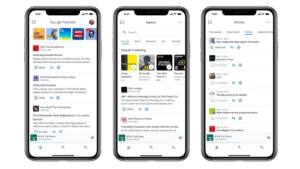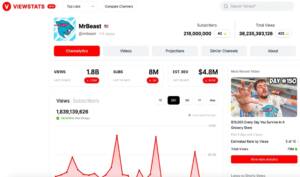The world of marketing has seen a significant shift in recent years, with the rise of social media and the increasing popularity of content creators. These individuals have amassed large followings on platforms like YouTube, Instagram, TikTok, and others by producing engaging and entertaining content.
Brands have been quick to recognize the value of partnering with these creators to reach their audiences. However, some brands have pre-conceived ideas that these creators must drive immediate sales, or else the campaign is a loss.
In this blog post, we will explore why this mindset needs to change, and why sponsoring content creators should be viewed as a long-term strategy.
It’s important to remember that content creators aren’t traditional marketers. They don’t have the same training or experience in creating ads that drive immediate sales. Instead, they excel at creating engaging content that resonates with their audiences.
When brands partner with content creators, they’re tapping into this ability to connect with people on a deeper level. The goal should be to build brand loyalty and increase engagement over time, rather than focusing solely on immediate sales.
One of the primary benefits of sponsoring content creators is the ability to solidify the brand as a household name across demographics. By partnering with creators who have diverse audiences, brands can increase their visibility and exposure to new markets. Over time, this can lead to increased brand recognition and loyalty, which can translate into long-term sales growth.
When it comes to long-term “household name” marketing, Coca Cola is a great example. The brand has been around for over a century and has become synonymous with soda. While they do run short-term campaigns and promotions, their primary goal is to build a strong, long-term relationship with their consumers.
One of the ways that Coca Cola has achieved this is through their advertising campaigns. Coca Cola has invested heavily in advertising over the years, with a focus on creating memorable and emotional ads that resonate with consumers. For example, their “Share a Coke” campaign encouraged consumers to buy bottles of Coca Cola with personalized labels, which created a sense of personalization and connection with the brand. The campaign was so successful that it has been run in multiple countries and languages.
Another way that Coca Cola has built a strong, long-term relationship with their consumers is through sponsorships and partnerships. Coca Cola has sponsored numerous sporting events, including the Olympics and FIFA World Cup, which has helped them reach a global audience. They have also partnered with celebrities and influencers, such as Taylor Swift, who helped launch their “1989” campaign. These partnerships help Coca Cola reach new audiences and increase their visibility over time.
Similarly, other big brands have taken a long-term approach to marketing by focusing on building brand recognition and loyalty over time. For example, Nike has invested heavily in sponsorships with professional athletes and teams, which has helped them become one of the most recognizable brands in the world. Apple has also focused on building a strong brand identity through sleek and innovative product design, which has helped them become a household name in the tech industry.
When it comes to partnering with content creators, there are numerous examples of brands that have taken a long-term approach to building their brand recognition and loyalty. For example, the beauty brand Glossier has become extremely popular among millennials and Gen Z consumers by partnering with influencers and content creators. Glossier has worked with creators like Emily Weiss, the founder of the brand, to create authentic and relatable content that resonates with their target audience.
Another example is the fast-food chain Wendy’s, which has become known for their witty and irreverent social media presence. Wendy’s has partnered with content creators to create engaging and entertaining content that goes beyond just promoting their products. For example, they worked with the YouTuber MrBeast to create a viral video where he ate Wendy’s chicken nuggets for 24 hours straight. While the video didn’t directly promote Wendy’s products, it helped increase the brand’s visibility and engagement with younger consumers.
Another benefit of partnering with content creators is the ability to leverage their existing relationships with their followers. Content creators have built trust with their audiences over time, and their recommendations hold significant weight. By partnering with a creator, brands can tap into this trust and use it to their advantage. The key is to approach this partnership in a way that is authentic and genuine. Pressuring a creator to drive sales may lead to inauthentic content, which can harm the brand’s reputation in the long run.
It’s also important to note that content creators have their own set of goals and objectives when it comes to partnering with brands. They want to create content that resonates with their audience and builds their own brand. If a brand is too focused on driving immediate sales, they may be missing out on the opportunity to build a long-term partnership with a creator. By taking a more strategic approach, brands can build relationships with creators that benefit both parties in the long run.
Ultimately, sponsoring content creators should be viewed as a long-term strategy rather than a short-term sales tactic. By focusing on building brand loyalty and engagement, brands can solidify their position as a household name across demographics.
The world of marketing is changing rapidly, and brands need to adapt to keep up. Content creators are an increasingly important part of the marketing landscape, and brands that partner with them need to take a more strategic approach. Additionally, by taking an authentic approach to partnerships, brands can leverage the trust and relationships that creators have built with their audiences. It’s time for brands to let go of the idea that creators must drive immediate sales and embrace the potential for long-term growth that comes with partnering with content creators.




